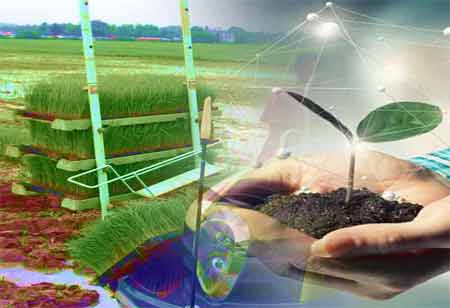THANK YOU FOR SUBSCRIBING
Be first to read the latest tech news, Industry Leader's Insights, and CIO interviews of medium and large enterprises exclusively from Education Technology Insights
Exploring Educational Tourism for Personal Growth and Global Understanding
Travel has long been regarded as a catalyst for broadening one's horizons in the field of intellectual exploration.

By
Education Technology Insights | Wednesday, January 10, 2024
Stay ahead of the industry with exclusive feature stories on the top companies, expert insights and the latest news delivered straight to your inbox. Subscribe today.
Educational Tourism is a transformative realm where travel becomes a canvas for immersive learning, personal growth, intercultural exchange, and sustainable practices.
FREMONT, CA: Travel has long been regarded as a catalyst for broadening one's horizons in the field of intellectual exploration. However, in today's world, travel has evolved beyond leisure to include a profound fusion of exploration and education. Educational tourism is a burgeoning field of travel where vacations and self-discovery merge into a transformative journey.
Educational tourism encompasses a diverse range of travel experiences meticulously designed to provide immersive learning opportunities that go beyond the traditional boundaries of the classroom. From volunteering in wildlife sanctuaries to exploring historical ruins, each aspect of this distinct travel style offers a one-of-a-kind opportunity for individuals to learn, grow, and connect with the world around them.
Destination as Classroom:
In the educational tourism paradigm, textbooks are replaced with living landscapes, and classrooms are replaced with historical landmarks. Envision walking through Venice's intricate canals, immersing oneself in the study of Renaissance art and architecture, or trekking through the Amazon rainforest to understand the delicate balance of its ecosystem; the destinations themselves serve as primary learning tools, offering authentic encounters with diverse cultures, histories, and environments.
Experiential Learning:
As opposed to traditional pedagogy, educational tourism rejects rote learning and passive listening. It thrives on active participation and engagement. Travellers transform into active participants in their learning journey, whether it involves mastering the art of traditional Thai cuisine or attending workshops on sustainable farming practices in rural communities. This hands-on approach promotes a deeper understanding, improved knowledge retention, and a strong personal connection to the subject.
Intercultural Exchange:
Geographical boundaries disappear in educational tourism, which provides unparalleled opportunities for meaningful connections with people from diverse cultures and backgrounds. Homestays, language immersion programs, and volunteer initiatives serve as channels for meaningful interactions with local communities. Travellers gain insights into different ways of life, learn to appreciate cultural differences and cultivate a broader perspective on the world.
Personal Growth:
Beyond acquiring expertise, educational tourism is an impetus for personal growth and development. Getting out of one's comfort zone, adapting to new environments, and overcoming obstacles contribute to resilience, confidence, and self-awareness.
Sustainable Practices:
Responsible travel is an essential component of educational tourism. Numerous programs highlight environmentally friendly practices and initiatives for sustainable development. Participants learn about conservation efforts, participate in environmental projects, and gain a deeper understanding of the critical task of protecting our planet.
Educational tourism becomes a canvas for exploration, catering to a diverse range of interests and age groups. For history enthusiasts retracing ancient civilisations, nature lovers marvelling at the wonders of the natural world, or lifelong learners exploring diverse cultures, there's an educational travel experience for every interest.
Embark on a Transformative Educational Journey with Strategic Planning
Considering these insightful tips will help one prepare to embark on an enriching educational tourism adventure. Beginning with defining one's interests, one should align one's chosen travel destination and program with passions and areas of interest to create a meaningful connection. This should be followed by choosing authentic experiences and prioritising immersion and interaction with local communities and cultures, resulting in a profound understanding of the destinations one visits. Furthermore, one should maintain the principles of responsible tourism by choosing programs committed to sustainable development and environmental conservation, thereby contributing to the preservation of our planet. Finally, they must embrace the unknown with open arms and challenge themselves with new experiences outside their comfort zone, paving the way for personal growth, learning, and an unforgettable journey of self-discovery.
Educational tourism transcends the mere concept of vacation. It represents an investment in personal development and global consciousness. Embracing the facets of this unique travel style enables individuals to embark on a transformative journey, broaden their horizons, and return home forever changed.







